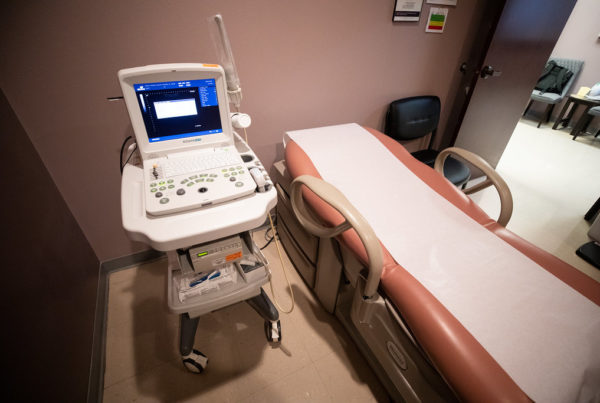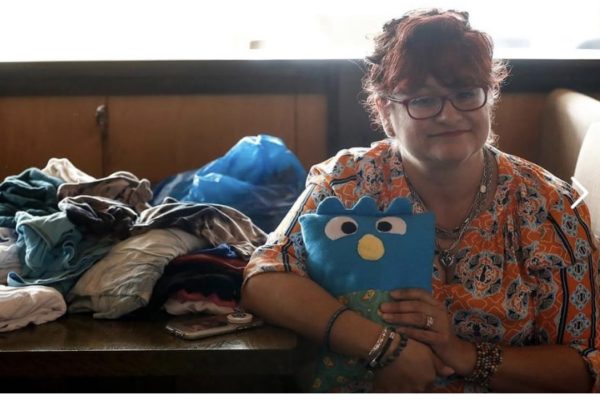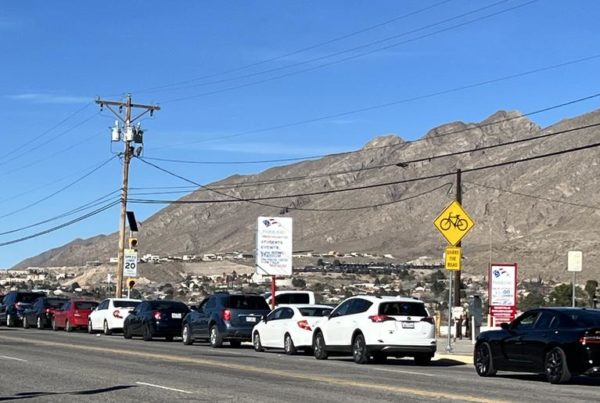The U.S. Supreme Court heard oral arguments Friday in two federal vaccine mandate cases. One mandate, issued by the Occupational Safety and Health Administration, or OSHA, requires businesses with more than 100 employees to require a COVID-19 vaccine. The other would mandate staff at health care facilities that benefit from Medicaid and Medicare funding to get vaccinated against COVID-19.
Steve Vladeck, the Charles Alan Wright Chair in Federal Courts at the University of Texas School of Law, says at least when it comes the OSHA case: “This is a court, a new conservative majority of which is hostile to broad statutory delegations of power to federal administrative agencies. I think that’s where the rubber is going to hit the road, at least in the OSHA case.”
On the health care mandate he said, “If you are a health care worker at a facility that is reimbursed by the federal government, where the federal government is literally paying the health care workers, then the federal government should be allowed to require those health care workers as a means of protecting the patients to be vaccinated. And I think here, you know, the justices really didn’t seem to think there was as much of a stretch in reading that kind of authority into the relevant statute.” Listen to the interview above or read the transcript below.
This transcript has been edited lightly for clarity:
Texas Standard: What were you hearing from the court about the OSHA mandate on private employers?
Steve Vledeck: it’s a little bit more than just a vaccine mandate. The OSHA rule, which is basically an emergency rule that’s designed to only be in place for a little while, would apply to all employers with 100 or more employees and would basically require them to either require vaccines from their employees, or regular testing. The idea is that the employer can make the choice between those two things, that’s best for them, with the idea being not that everyone has to be vaccinated, but that the goal is to mitigate the risk of spread and of transmission in the workplace.
I think the way the arguments went on Friday – this is the one where there’s a pretty good bet the Supreme Court’s going to put that rule on hold. And we’re going to see the court say that the Biden administration went beyond what the statute actually allows OSHA to do.
But as we have discussed here before, vaccine mandates have been upheld in the past by the Supreme Court. What is it about this particular mandate
I think this is where there’s a lot of misconception out there. The vaccine mandates the Supreme Court has historically upheld have been vaccine mandates from private employers, vaccine mandates from local governments, vaccine mandates from state governments.
There’s the famous case, Jacobson versus Massachusetts in 1905. It is about a state vaccination mandate. So the difference here is that because it’s the federal government, that doesn’t change the question of our individual rights. It does raise additional questions about federal administrative law and whether the agency, in this case, OSHA, is acting consistent with the statutory authority. Congress has delegated to it.
Part of the interesting thing that came out of Friday’s arguments is: this is a court, a new conservative majority of which is hostile to broad statutory delegations of power to federal administrative agencies. I think that’s where the rubber is going to hit the road, at least in the case.
I noticed that there were some questions about whether or not OSHA had the expertise when it came to vaccinations, that sort of thing, right?
Yeah. And that’s where I get a little bit frustrated with the court because the whole theory of modern administrative law is that we put folks in agencies like OSHA or the FDA or the Center for Medicaid and Medicare Services because they know more about their industries than we do. And then federal judges do. I think this is why a lot of the discussion on Friday came down to who’s in the best position to make the call when it comes to not necessarily the perfect solution for the workplace – there is no one size fits all solution – but between members of Congress, agency experts who are subject to the president’s control or federal judges. Which of those three do we think are situated to set the policy?
That brings us to the other vaccine mandate before the court. It has to do with health care facilities that use Medicare and Medicaid funding. The judges seemed less skeptical, including the conservatives, when it came to that one. Why?
It comes back to administrative law. The Center for Medicare and Medicaid Services is the big federal agency that supervises the Medicaid and Medicare programs. These are, of course, massive federal programs. And the mandate there is that if you are a health care worker at a facility that is reimbursed by the federal government – where the federal government is literally paying the health care workers – then the federal government should be allowed to require those health care workers as a means of protecting the patients, to be vaccinated.
The justices really didn’t seem to think there was as much of a stretch in reading that kind of authority into the relevant statute. I think there’s a lot of public conception out there that these cases are referenda on individual rights vis-a-vis vaccine mandates. I think that’s not true. They really are technical, but very important questions about Congress delegating power to federal agencies about how specific those delegations have to be and about whether those delegations can encompass major policies like these kinds of vaccination requirements.
These cases are being heard at a time when we’re seeing the omicron variant lead to a spike in the pandemic. Time is of the essence here, is it not?
I think it is, and this is actually very, very early for the court to be stepping in, given how late these cases were filed last year. So the fact that the court heard argument on these cases, the fact that it’s being asked to decide what to do with these policies so early in these lawsuits is a reflection of the urgency from everyone’s perspective, not just from the public health officials’ perspective, but from employers perspectives and from health care workers’.
I presume that means that we may be getting a decision before the usual June deadline, when all of a sudden the heavy cases come out?
Oh, I assume we’ll hear something this week.














